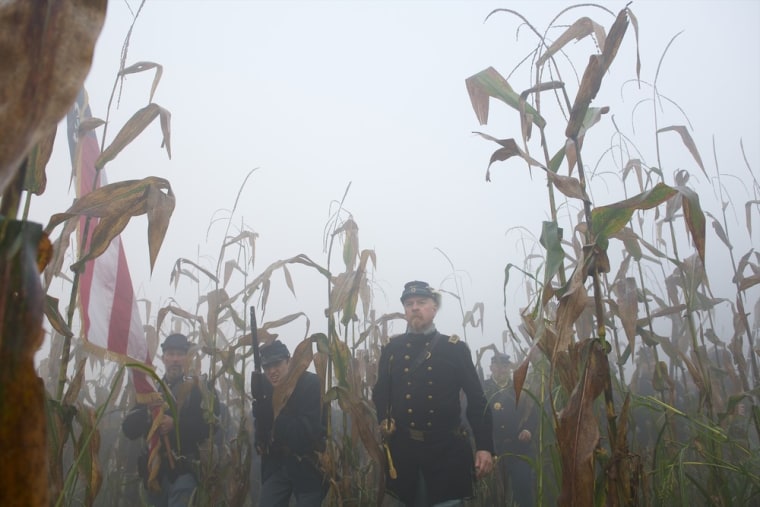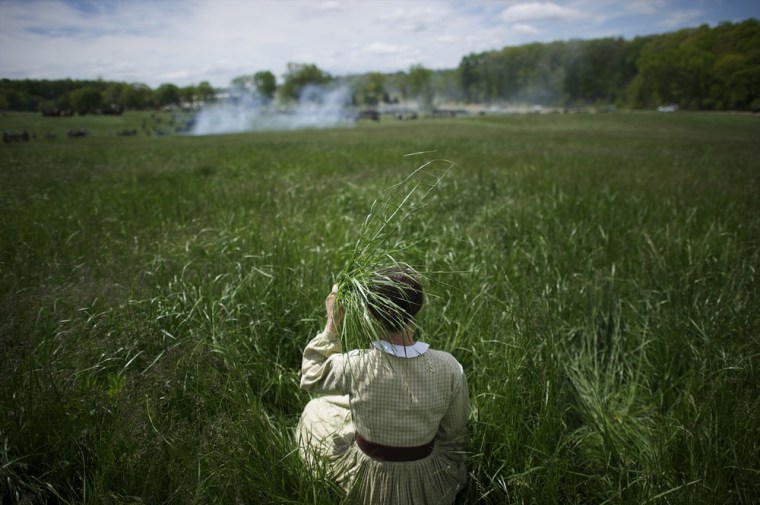
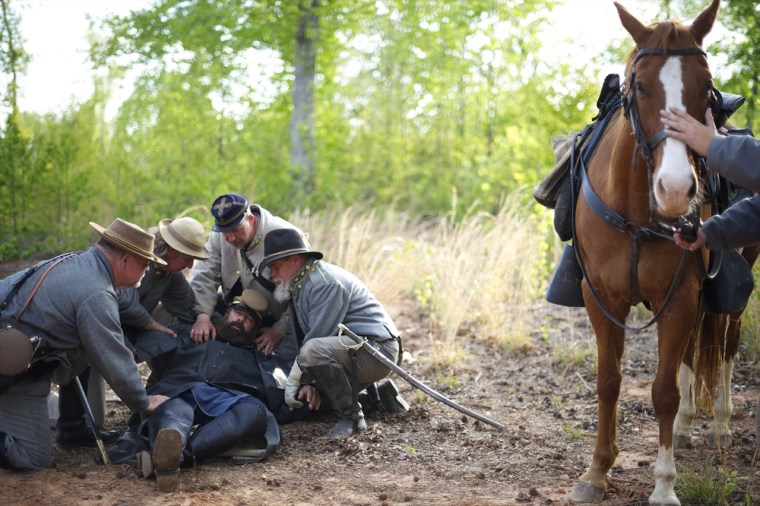
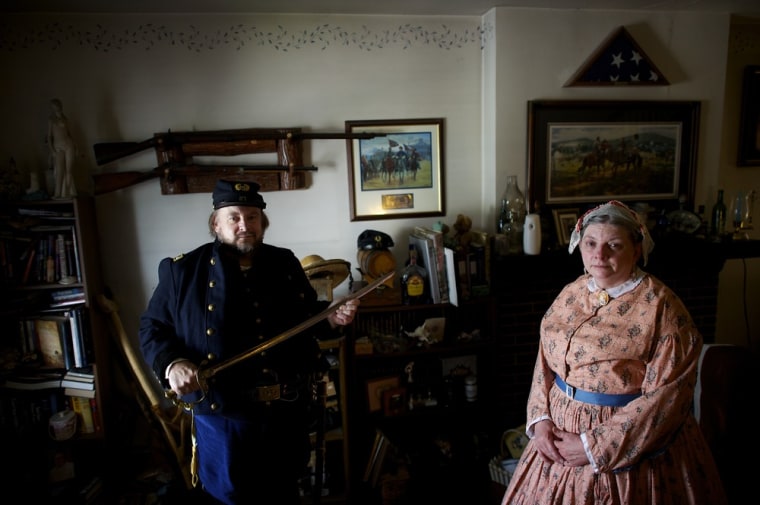
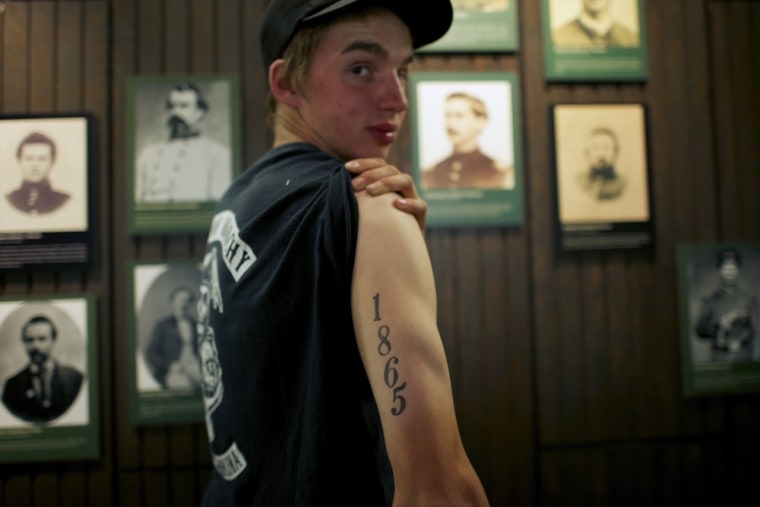
For the last year, photojournalist Mark Makela traveled thousands of miles documenting a vibrant subculture of “hardcore authentics,” Civil War re-enactors who honor the importance of the living history, as they marked Civil War sesquicentennial commemorations around the country.
By Mark Makela, NBC News contributor
To mark Civil War sesquicentennial commemorations, legions of “hardcore authentics” stage interpretations of historical events on or nearby the battlefields where they occurred 150 years ago. These people prefer to consider themselves living historians rather than re-enactors. For many of them, the apex of their military "careers" will transpire this week with the 150th anniversary of the Battle of Gettysburg.
“My family fought for the South. I love history and it’s an amazing thing these boys done,” said Harold Lawson, a living historian of 30 years, and senior officer of the 2nd Virginia Corps. “These boys are part of our history that we shouldn’t let anyone forget and need to learn from this war.”
According to Lance Dawson, a Union commander of the Army of the French Broad River, “a true re-enactor looks at both sides of the history. I liked esprit de corps of the Union, the unified look and feel.”
“The Union was fighting for the better of the country, the macro,” said Dawson, who grew up in Knoxville Tenn., where Union soldiers were far fewer. “The Rebel soldier was more about the micro, fighting for the individual states.”
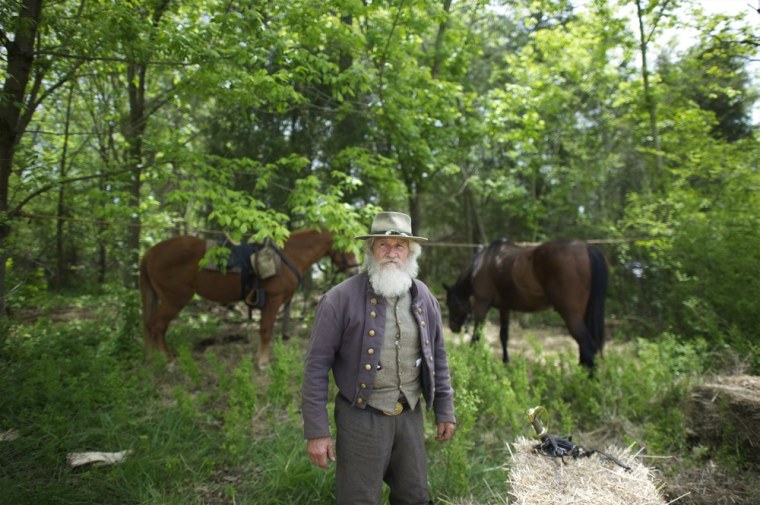
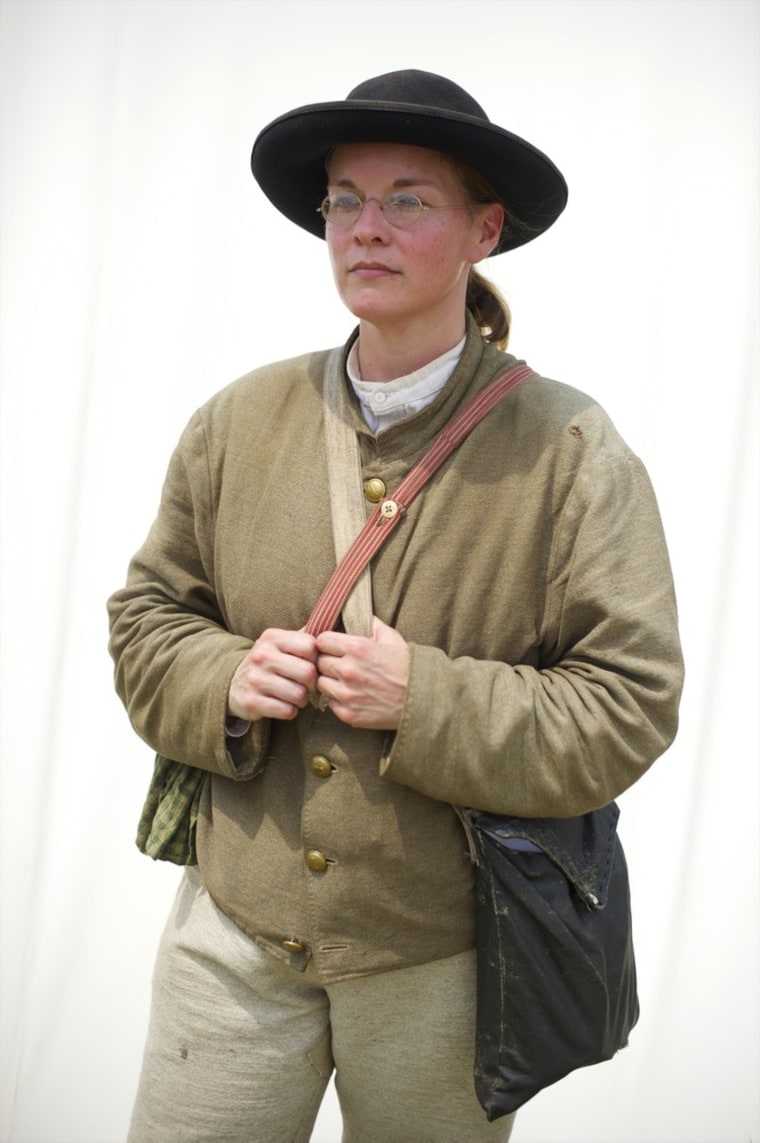
An estimated 20,000 re-enactors are anticipated at the Gettysburg events, and there are many degrees of interpretations between the hardcore authentics and mainstream re-enactors.
Hardcores seek absolute fidelity with the 19th century lifestyle and aim to portray the life of Union and Confederate soldiers and civilians. When developing a character, hardcores pay utmost attention to documented accounts and photographic evidence from all aspects of the 1860s, across many facets: uniforms, equipment, food, language and all.
“We’re all pretty much too tall, too heavy; there are a lot of things that we can’t change,” said Serena Bellew, a British woman from Washington D.C., who portrays an enlisted Confederate private, named George. “We’ll never get very close to being what it was really like, but we get flashes of it at different events.”
Though there is documented proof that women disguised as men fought in the war, Bellew encounters resistance and says it’s difficult to find a hardcore group that will take her. “When I went to my first hardcore event I had to present myself for inspection as being non-female enough to not be recognized in the ranks,” she said. “It’s a very different set of rules for me and I have to always continue to keep proving myself.”
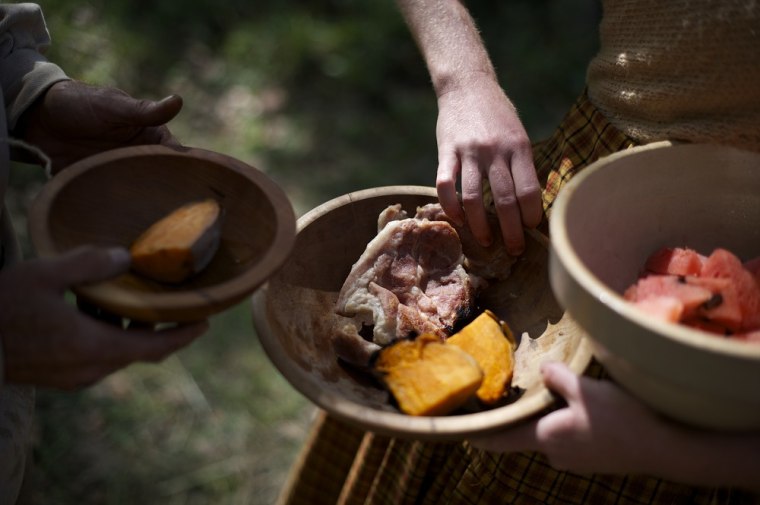
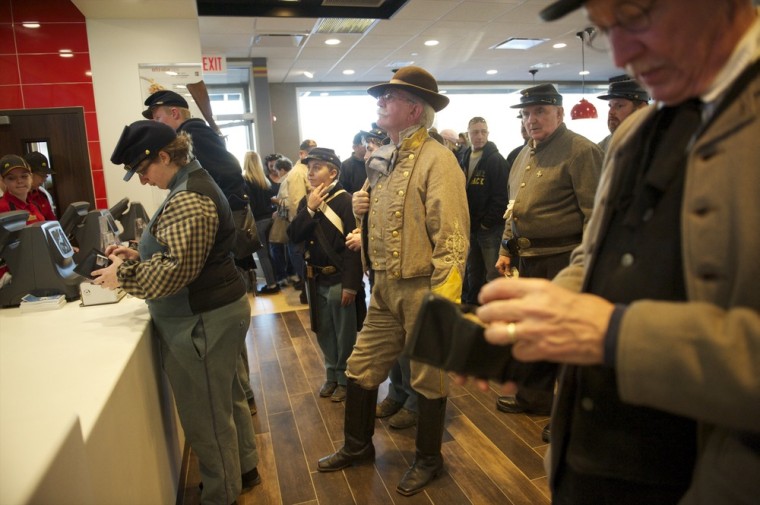
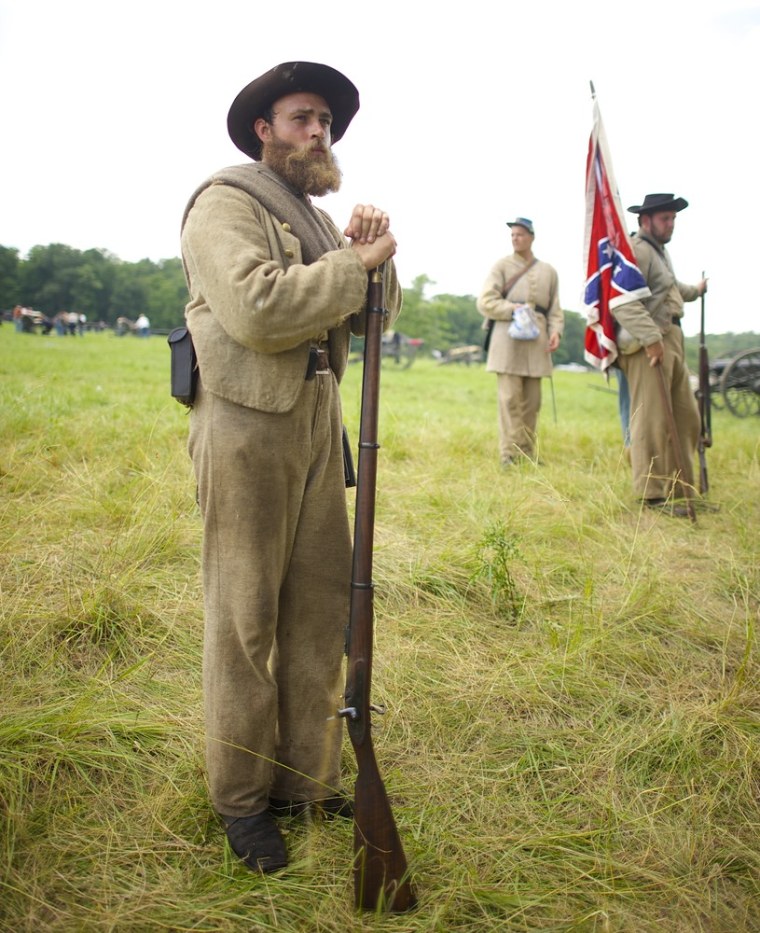
Other re-enactors resist classification, instead they stress that they are “progressive.” As students of history, they keep researching and learning more in order to best interpret the newfound understanding of their hobby. Progressives strive to be 100 percent accurate, but acknowledge that it’s impossible.
"We're surrounded by modern anachronisms, it's hard to stay in the zone surrounded by the many people out here that are not as inclined to be historically accurate," said Ryan Kiesel, a progressive re-enactor from Baltimore. "But we put ourselves in the shoes of the soldier; we galvanize; we do both. There's no difference when doing the north or the south. It's the sense of camaraderie among us."
Regardless to which side a living historian supports or the level of their authenticity, a unifying theme emerges. Re-enacting is an often all-encompassing and meaningful way in which to honor the past and preserve a way of life.
"When I was younger, I loved the smell of smoke and the battle," said Dawson, who has been re-enacting for 30 years. "Now that I am older, I still love the history, the tactics, the drills, but I come out here for the camaraderie of my friends."
Lawson, a Vietnam veteran said, “Re-enacting relieves those anxieties and gives me good thoughts instead of bad thoughts, because when I got back I had a real hard time.”
"You learn not to take things for granted. You go home to your air-conditioned house and you think it could be worse; I could be still out here; I could have the real threat of dying," said Ryan Sipe, 19, a hardcore from Pennsylvania. “You get a better appreciation for all the things you do have.”
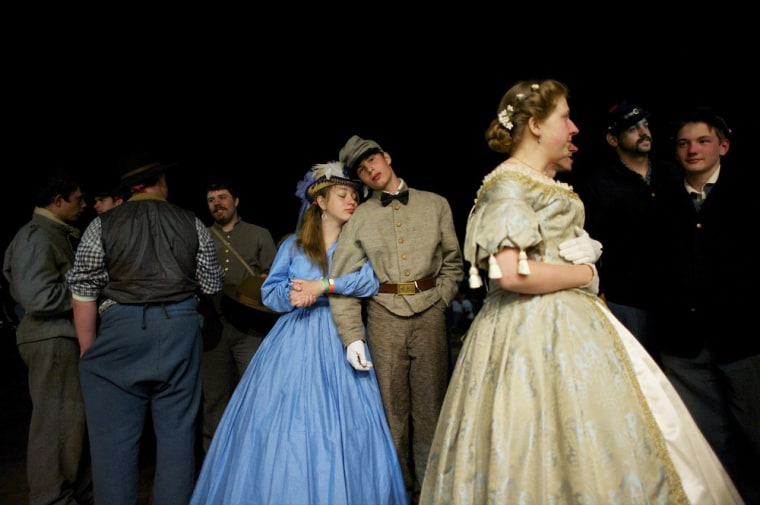
Related links:
- Thousands converge on Gettysburg to mark 150th anniversary of Civil War battle
- Photographer brings Civil War to life with centuries-old technology
- Invasion orders found wrapped around cigars in field led to bloodiest day in U.S. history
- Help sought to solve Civil War photo mystery
- 50 years on, 3-D Civil War photos unveiled
